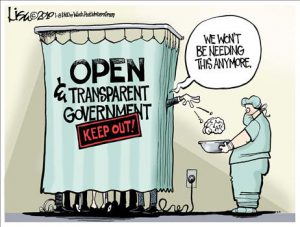Throughout the months of discussion around the email controversy of Hillary Clinton, there is one word that continues to appear: “transparency”. FBI agents used it during the investigation, voters have used it as they try to understand the situation, and Hillary has used it consistently.
Why Transparency?
As a rhetorical strategy for a political campaign, the word transparency provides strong imagery of honesty and openness. The use of this word as a strategy to project trustworthiness through an image of openness appeals to the voters’ logic and emotions simultaneously. During an election, voters are looking for a candidate that is not only capable but also likable and trustworthy. Voters do not vote based solely upon logic. Instead, voters are swayed by their emotions which in part determine their voting preferences. While we all know it is important to trust a candidate, voters also are more inclined to trust someone they picture as not hiding secrets from the public. An article from The Washington Post stated, “We should keep demanding complete transparency from both of them”.
In the realm of the Clinton email controversy, the rhetoric of transparency was an important strategy during the primary stage of the election. The primary stage is the time when the party front-runners are determined and candidates focus on feedback from voters. The voters were not pleased with the way Hillary first handled the investigation, so she adapted to a new strategy focusing on transparency for the voters. By redefining her image as transparent, Hillary began to change public opinion in order to secure her spot as the Democratic nominee.
How Much Transparency?
During an election, voters believe they have the right to know the truth from all candidates. Voter preference has been strongly linked to a candidate’s character. The new junkyard-dog style of journalism has resulted in the media constantly trying to dig up stories that draw into question a politician’s character. While most voters can agree transparency is important for political figures, there can be disagreement upon where to draw the line between private and public lives. This issue appears in the ongoing email controversy in terms of the “private emails” that Hillary either did not turn over or deleted.
Overall, it seems that adopting a rhetoric of transparency was a smart political communication strategy for Hillary during this time and will continue to allow voters to visualize her as more presidential.


I totally agree that adopting the transparency into her rhetoric was the only option to keep her reputation afloat. Do you think she could of done more to be transparent? I know in the beginning of her campaign, Clinton spent time campaigning one-on-one instead of doing many events, but did that hurt her because she wasn’t in the public eye? Yes, she was transparent to some, but did that tactic play to the transparent strategy?